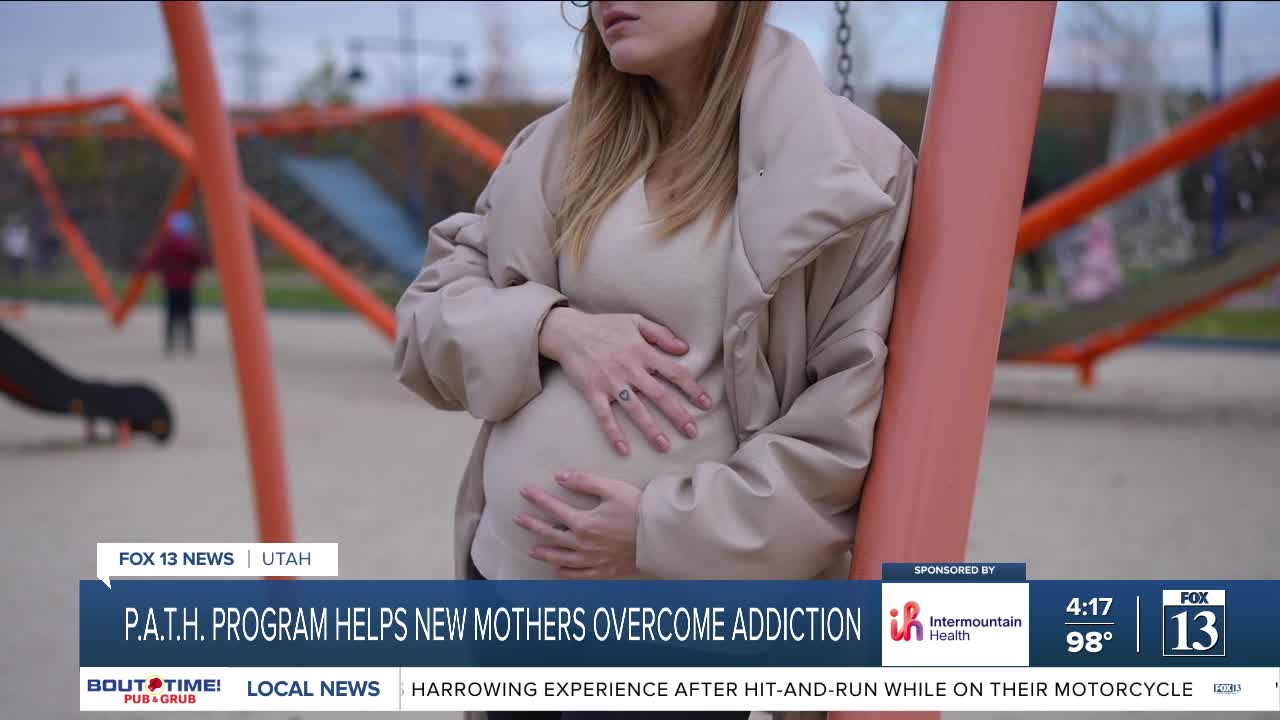Drug-induced death is one of the leading causes of pregnancy-associated deaths in Utah.
This week’s Wellness Wednesday is about heartbreak — and hope.
“For me, I get to share my story nowadays, and for me, I say that with pride,” said Elizabeth Myers. “I’m not proud of all the choices that I’ve made and, um, the experiences that I’ve been through, but with that, if it wasn’t for that, I wouldn’t be able to do what I do today.”
Myers is a peer recovery coach. She’s been through a lot, and her clients hear in her voice the pain they themselves are experiencing.
“The stigma that goes along with having that substance use, it stays,” she said.
But they also hear the possibility that comes with confronting two immense challenges at once: becoming a mother and overcoming addiction.
“Pregnancy is an extremely motivational time, so anyone who’s been involved in OB care or has been pregnant themselves knows this for sure,” said Dr. Terri Kurtz, an OB-GYN with Intermountain Health.
Kurtz wants to help women channel that motivation into constructive change. She knows all parents want to be good at the job.
“You want to be the best version of yourself because soon you’ll have a baby,” she said. “And you want to be the best mom that you possibly can.”
At Intermountain McKay-Dee Hospital in Ogden, Kurtz and Myers are part of a new program called the Peripartum Addiction Treatment and Healing program — or PATH.
“I can’t do my job without Empowered, because it’s probably the most important thing that any of our patients can gain,” Kurtz said.
Empowerment often starts with simply having someone to call when the risk of relapse or the weight of postpartum mood disorders becomes overwhelming.
While Kurtz — who is currently pregnant herself — and her OB colleagues focus on guiding patients through the physical challenges of pregnancy and childbirth, peer coaches like Myers handle the ongoing support that sustains physical and mental health. That might include helping patients find housing or a domestic violence shelter, coordinating detox services, securing insurance, or accessing food and transportation.
Myers is accredited through the Empowered program at Roseman University — and she’s empowered by her own experience.
“It’s a huge healing process for me,” she said. “You know, I’ve done things in my life that I’m not proud of, and then today I’m watching these women — being able to help them navigate through all their struggles and their successes. You know, we have these amazing individuals — women that are just blessed and wanting to make that change.”
“Most of these patients, they’ll, you know, find out that they’re pregnant and just want to completely turn their life around,” Kurtz added.
Resources:
For more information about the PATH prenatal care clinic and other substance use programs, call 801-387-4647 or visit the PATH Addiction Treatment page at intermountainhealth.org.
For social support services for moms at risk for substance use during pregnancy, visit empoweredmoms.org or email PATHUT@imail.org.




